Core Faculty
-
 Aniruddha Mitra, Director
Aniruddha Mitra, Director
Aniruddha Mitra, Director
Program Affiliations: Economics, Economics and Finance, Global and International Studies
M.A., Delhi School of Economics, Delhi University; M.S., Ph.D., University of Illinois at Urbana-Champaign. Teaching and research interests include microeconomics; game theory; industrial organization; developmental economics; the economics of race, ethnicity, and gender; and the economics of migration. His research employs both theoretical and empirical methods to investigate the phenomena of discrimination, ethnic conflict, and the international migration of skilled labor. He has published in Applied Economics Letters, Eastern Economic Journal, Mathematical Social Sciences, and Economic Systems. He previously taught at Middlebury College and the University of Illinois at Urbana-Champaign. At Bard since 2012. -
 Youssef Ait Benasser
Youssef Ait Benasser
Youssef Ait Benasser
Academic Program Affiliation(s): Economics
Biography: Professor Benasser (they/he) specializes in international trade policy analysis, with complementary interests in applied econometrics, financial economics, and political economy. Their research focuses on analyzing trade policy irregularities in the context of weakening multilateralism. Publications include “Measuring Trade Policy Uncertainty and Its Impact on Financial Market Volatility” (under review); working papers addressing the symmetry of trade policy and the trade diversion impact of China’s commercial diplomacy; and the works-in-progress “Foreign Direct Investment and Knowledge Diffusion: A Network Approach” and “Labor Bargaining Power along the Value Supply Chain.” Benasser comes to Bard from Reed College, where they taught courses in macroeconomics and international trade. Born in Rabat, Morocco, Professor Benasser also has experience in the private and public sectors, having worked for several years at firms in Paris, including S&P Global Ratings and La Banque Postale, as well as the French Treasury, Tunisia and Libya office, in Tunis. They are the recipient of numerous awards and fellowships from both the University of Oregon and Sciences Po.
BA, political science, Sciences Po Paris; MSc, economics and public policy, Ecole Polytechnique and Sciences Po Paris; PhD, University of Oregon. At Bard since 2023. -
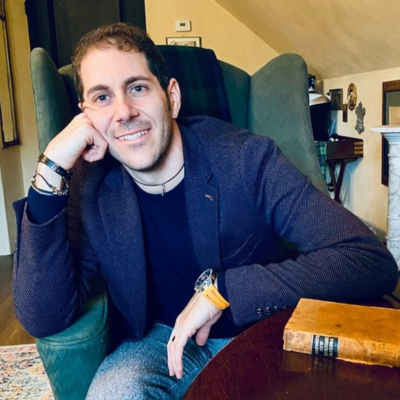 Emanuele Citera
Emanuele Citera
Emanuele Citera
Emanuele Citera is an Assistant Professor of Economics at Bard College. He previously spent two years at St. Lawrence University, where he contributed to developing the Finance major and taught courses on Corporate Finance, Financial Crises, the History of Finance, and Introduction to Finance.
Dr. Citera received a Ph.D. and M.Phil. in Economics from the New School for Social Research, an M.A. in Economics and Complexity from Collegio Carlo Alberto, and an M.Sc. and B.Sc. in Business Economics from the University of Bologna. Later, he served as a Teaching Fellow at Eugene Lang College for Liberal Arts and a Research Fellow at the Fondazione Luigi Einaudi Onlus (Turin, Italy).
His primary field of research is Financial Economics. In particular, he focuses on the stochastic structure of financial markets and investors’ behavior. He investigates this by applying Information Theory and Statistical Equilibrium methodology. He also adopts historical and institutional approaches to analyze the evolution of the financial system. Other research areas of interest include Monetary Economics, Complexity Economics, and the History of Economics.
His work has been published in various academic journals, including Structural Change and Economic Dynamics, the Review of Political Economy, and the Annals of the Fondazione Luigi Einaudi.
At Bard since 2024. -
 Sanjaya DeSilvaAssociate Professor of Economics; Research Associate, Levy Economics Institute
Sanjaya DeSilvaAssociate Professor of Economics; Research Associate, Levy Economics Institute
Office: Albee 214
845-758-7072 | [email protected]

Sanjaya DeSilva
Associate Professor of Economics; Research Associate, Levy Economics Institute
Office: Albee 214
845-758-7072 | [email protected]
Area of Specialization: Development, Economic History, South and Southeast Asia
Professor DeSilva’s teaching fields include economic development, Asian economic history, international trade, and econometrics. Areas of research include urbanization; race, ethnicity, and immigration; and economic history of development. His current project explores the intersection of ethnicity, space, and urban development in Colombo, Sri Lanka, from a historical perspective. Recent publications include “Access to Markets and Farm Efficiency: A Study of Bicol Rice Farms Over Two Decades,” in Technology, Innovations, and Economic Development: Essays in Honour of Robert E. Evenson (Sage, 2015); “Long-term Benefits from Temporary Migration: Does the Gender of the Migrant Matter?”, Levy Economics Institute Working Paper No. 756 (2013); and “Racial and Ethnic Price Differentials in a Small Urban Housing Market” (with A. Pham and M. Smith), Housing Policy Debate, Vol. 22, No. 2 (2012). DeSilva is a research associate at the Levy Economics Institute of Bard College and Verité Research in Sri Lanka.
BA, Macalester College; MA, MPhil, PhD, Yale University. At Bard since 2000.
Interests:- Research Interests: Race, ethnicity and migration ; urban development; Asian economic history
- Teaching Interests: Development economics; Asian economic history; Econometrics
-
 Michael Martell
Michael Martell
Michael Martell
Program Affiliations: Economics and Finance, Gender and Sexuality Studies, Global Public Health
B.A., University of Oregon; M.A., Ph.D., American University. Teaching and research interests include labor and industrial relations, health and demographic economics, public policy, LGBTQ+ Economics, household and feminist economics as well as the economics of inequality and discrimination. He has served as an economist in the Office of the Assistant Secretary of Labor for Safety and Health, U.S. Department of Labor; at the Office of Regulatory Analysis, U.S. Occupational Safety and Health Administration; and at the Office of Safety and Health Statistics, U.S. Bureau of Labor Statistics. He previously taught at Franklin and Marshall College, American University, Elizabethtown College, and University of Mary Washington. Publications include articles in Review of Economics of the Household, Economics Letters, Contemporary Economic Policy, Education Economics, British Journal of Industrial Relations, Review of Social Economy and others. His work has been supported by the Royal Swedish Academy of Sciences, the AU Innovative Research in Gender Economics program, and the Social Science Research Council of Canada. He is a Fellow at the Global Labor Organization and a member of the inaugural American Economic Association Committee on the Status of LGBTQ+ Individuals in the Economics Profession. At Bard since 2016. -
 Kyle Mohr
Kyle Mohr
Kyle Mohr
Kyle Mohr’s research interests include unemployment, labor economics, monetary theory and policy, and the history of economic thought. He has served as lecturer in the economics department at Skidmore College and research scholar at Bard’s Economic Democracy Initiative. At Skidmore, he taught courses in introductory macroeconomics and economics and the global financial crisis. At the University of Missouri, Kansas City, where he earned his MA degree and is a PhD candidate, he taught the course Money and Banking. Publications include a book review in Journal of Cultural Economy and, as research assistant, 2019 Black Inequality Index: State of Black Kansas City and 2019 Hispanic Inequality Index: State of Hispanic Kansas City, developed for the Urban League of Greater Kansas City. He has made conference presentations on subjects including “Transitioning into Unemployment: Sectoral and Relative Wage Changes since the Great Recession”; “Leaving U: Investigating Monthly Transitions from Official Unemployment”; and “Considering the Community Development Block Grant Program: A Case of Federally Funded and Locally Administered Public Policy.” He also was conference co-organizer for, among others, the OSUN-EDI Summer Workshop in Economic Policy and Public Finance (Bard Annandale), a virtual global forum on democratizing work, and the 13th International Post-Keynesian Conference (Kansas City).
BA, University of California, Santa Cruz; MA, PhD candidate, University of Missouri–Kansas City. At Bard since 2023. -
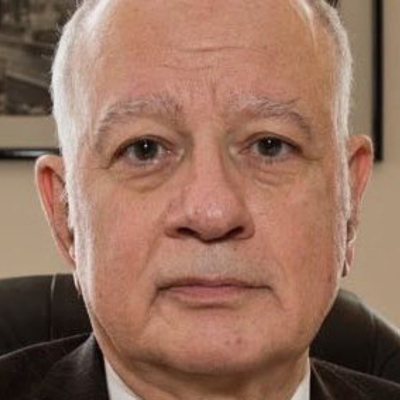 Dimitri B. PapadimitriouPresident, Levy Economics Institute; Jerome Levy Professor of Economics; Executive Vice President Emeritus, Bard College
Dimitri B. PapadimitriouPresident, Levy Economics Institute; Jerome Levy Professor of Economics; Executive Vice President Emeritus, Bard College
Office: Blithewood 200
845-758-7711 | [email protected]
Dimitri B. Papadimitriou
President, Levy Economics Institute; Jerome Levy Professor of Economics; Executive Vice President Emeritus, Bard College
Office: Blithewood 200
845-758-7711 | [email protected]
B.A., Columbia University; M.A., Ph.D., Graduate Faculty of the New School University, Department of Economics. Minister of Economy and Development, Hellenic Republic (2016–18). Visiting Distinguished Scholar, Institute of World Economy, Shanghai Academy of Social Sciences (2002). Visiting scholar, Center for Economic Planning and Research, Athens; Wye Fellow, Aspen Institute (1985); Center for Advanced Economic Studies Fellowship (1983, 1986); Whittemore Fellowship (1968); Anglo-American Hellenic Fellowship (1968, 1969). Consultant, Greek Ministry of Education (2002–05); board of directors, William Penn Life Insurance Company (1972–2010); vice chairman, Trade Deficit Review Commission, U.S. Congress (1999–2001); member, Capital Allocation Subcouncil of the Competitiveness Policy Council (1993–98). Trustee and chairman, American Symphony Orchestra; advisory board member, Women’s World Banking; fellow, Economists for Peace and Security; member, Economic Club of New York, The Bretton Woods Committee, American Economic Association, American Finance Association, Association for Evolutionary Economics, Royal Economic Society (UK), Eastern Economic Association, European Economic Association, and Hellenic-American Bankers Association.
Articles in International Encyclopedia of Social Sciences, The Milken Institute Review, Analyst, Journal of Applied Business Research, Routledge Encyclopedia of International Political Economy, Eastern Economic Review, Journal of Comparative Economic Studies, Working USA, Journal of Economic Issues, Review of Political Economy, The Economic Journal, Challenge, Chicago Tribune, Financial Times, New York Times, European Journal of Political Economy. Editor and contributor, Financial Conditions and Macroeconomic Performance: Essays in Honor of Hyman P. Minsky, with Steven M. Fazzari (1992); Profits, Deficits, and Instability (1992); Poverty and Prosperity in the U.S.A. in the Late Twentieth Century, with Edward N. Wolff (1993); Aspects of the Distribution of Wealth and Income (1994); Stability in the Financial System (1996); Modernizing Financial Systems (2000); Hyman P. Minsky’s Induced Investment and Business Cycles (2004); The Distributional Effects of Government Spending and Taxation (2006); Government Spending on the Elderly (2007); Hyman P. Minsky’s John Maynard Keynes and Stabilizing an Unstable Economy, with L. Randall Wray (2008); The Elgar Companion to Hyman Minsky, with Wray (2010); Contributions in Stock-flow Modeling: Essays in Honor of Wynne Godley, with Gennaro Zezza (2012); Contributions to Economic Theory, Policy, Development and Finance: Essays in Honor of Jan A. Kregel (2014); and The Collected Economic Papers of Hyman P. Minsky (forthcoming). Author, Levy Institute Strategic Analysis reports; the Public Policy Briefs Community Development Banking and A Path to Community Development, with Ronnie J. Phillips and Wray; An Alternative in Small Business Finance, Targeting Inflation: The Effects of Monetary Policy on the CPI and Its Housing Component, Does Social Security Need Saving? and Fiddling in Euroland as the Global Meltdown Nears, with Wray; Endgame for the Euro, with Wray and Yeva Nersisyan; Monetary Policy Uncovered, Understanding Deflation: Treating the Disease, Not the Symptoms and Cracks in the Foundations of Growth, with Greg Hannsgen and Zezza; The New New Deal Fracas, Debts, Deficits, Economic Recovery, and the U.S. Government, Will the Recovery Continue: Four Fragile Markets, Four Years Later, Fiscal Traps and Macro Policy after the Eurozone Crisis, with Hannsgen; and After Austerity: Measuring the Impact of a Job Guarantee Policy for Greece, with Rania Antonopoulos, Sofia Adam, Kijong Kim, and Thomas Masterson; and the Policy Notes Fiscal Stimulus, Job Creation, and the Economy: What Are the Lessons of the New Deal, with Hannsgen; Fiscal Policy for the Coming Recession, Are We All Keynesians (Again)?, The April AMT Shock, Time to Bail Out: Alternatives to the Bush-Paulson Plan, and Euroland’s Original Sin,, with Wray; The Greek Public Debt Problem, with Michalis Nikiforos and Gennaro Zezza; What Should Be Done with Greek Banks to Help the Country Return to a Path of Growth?, with Emilios Avgouleas; and Complementary Currencies and Economic Stability.
Member, editorial board, Challenge, The Bulletin of Political Economy, and Journal of Economic Analysis; book reviewer, Cambridge Journal of Economics, Journal of Post Keynesian Economics, Journal of Comparative Economic Studies, The Economic Journal, and Atlantic Economic Journal. Frequent commentator on National Public Radio. Witness to U.S. Senate and House Committee Hearings on Banking, Finance, and Small Business.
At Bard since 1977. -
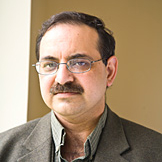 Gautam SethiAssociate Professor of Economics and Econometrics, Bard Center for Environmental Policy
Gautam SethiAssociate Professor of Economics and Econometrics, Bard Center for Environmental Policy
Office: Hegeman Science Hall 005
845-758-7386 | [email protected]
Gautam Sethi
Associate Professor of Economics and Econometrics, Bard Center for Environmental Policy
Office: Hegeman Science Hall 005
845-758-7386 | [email protected]
BA, University of Delhi; MA, Delhi School of Economics; MPhil, Jawaharlal Nehru University, New Delhi, master’s thesis on the conflicts between utilitarianism and libertarianism; Fellow, University of Texas, Austin; PhD, University of California, Berkeley (Outstanding Graduate Student Instructor Award). Research interests include natural resources and environmental economics, applied microeconomics, game theory, philosophy of economics, and history of economic thought. Worked in India on energy-economy-environment linkages and associated policy issues. Doctoral work focused on fishery management under certainty. Designed and taught a Rethinking Economics course at the University of California, Berkeley. Author, working papers of climate change policy impacts at Redefining Progress, San Francisco, and a companion volume to Jeffrey Perloff’s Microeconomics; article in the Journal of Environmental Economics and Management. Presented research talks at academic institutions (Binghamton University, University of California-Santa Barbara), research institutes (Institute of Ecosystem Studies, Millbrook, Tata Energy Research Institute, India), policy forums (OECD workshop, Oaxaca, Mexico), and numerous professional society meetings. -
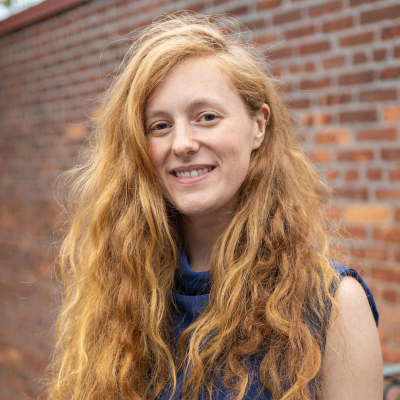 Birte Strunk
Birte Strunk
Birte Strunk
Birte Strunk is an Assistant Professor of Economics. Her teaching focus includes classes in Political Economy of Race and Gender, Ecological Economics, and American Economic History. She holds a PhD in economics from the New School for Social Research (NSSR) in New York City.
Originally from Germany, she received her undergraduate degree from University College Maastricht, a Liberal Arts College in the Netherlands, and holds master’s degrees in both economics (MSc Vienna University; MPhil NSSR) and philosophy (Fernuniversität Hagen). Since 2024, she has pursued a second PhD in philosophy at NSSR (currently on leave). As part of her economics PhD, she was a research fellow at the Germany-based ZOE Institute for future-fit economies, and spent a semester as a visiting research fellow at Harvard University. She has also been a long-standing member of a number of activist and professional networks in Europe, such as the Pluralism in Economics Network or the Post-Growth Economics Network.
As a feminist ecological economist, her research focuses on linking social and ecological perspectives, especially around questions on labor. As a philosopher, she explores Degrowth as a Critical Theory of the economy. In the past, she published on feminist ecological economics, degrowth and philosophy of (plural) economics. -
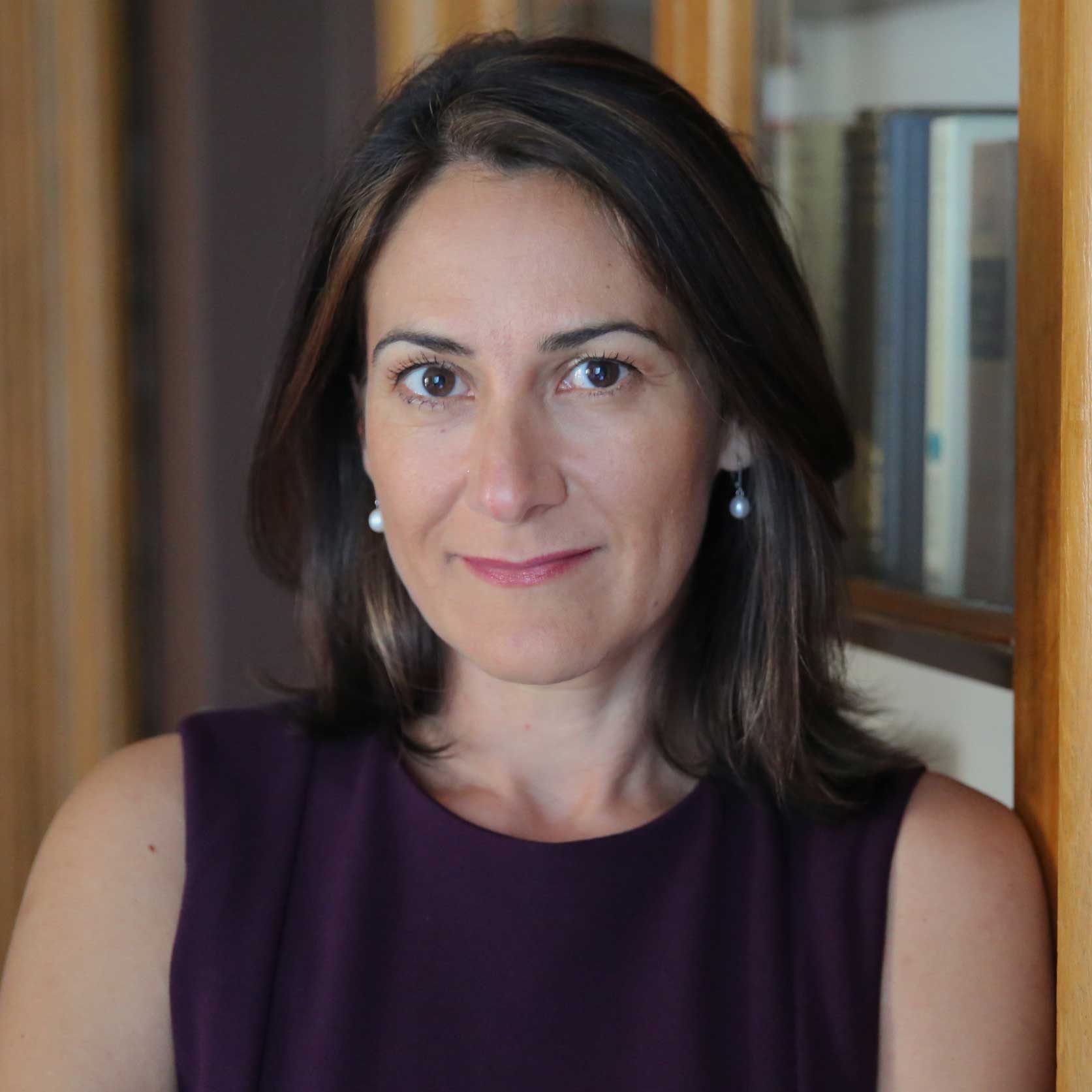 Pavlina TchernevaProfessor of Economics; Research Associate, Levy Economics Institute; Director, OSUN Economic Democracy Initiative
Pavlina TchernevaProfessor of Economics; Research Associate, Levy Economics Institute; Director, OSUN Economic Democracy Initiative
Office: Levy 200
845-758-7075 | [email protected]
Pavlina Tcherneva
Professor of Economics; Research Associate, Levy Economics Institute; Director, OSUN Economic Democracy Initiative
Office: Levy 200
845-758-7075 | [email protected]
Affiliated Programs: Economics and Finance, Gender and Sexuality Studies, Global and International Studies
Pavlina R. Tcherneva is professor of economics at Bard College, founding director of the OSUN Economic Democracy Initiative, and research scholar at the Levy Economics Institute. She specializes in macroeconomic theory and policy. Her teaching interests include money and banking, employment policy; and the history of economic thought.
Her areas of research include monetary and fiscal policy coordination, the Bernanke doctrine, direct employment policies, and policy responses during the 2008 and 2020 COVID-induced economic crises. Her work has appeared in the Eastern Economic Journal, Review of Social Economy, Journal of Post Keynesian Economics, Journal of Economic Issues, International Journal of Political Economy, Revista de Economía Crítica, Revue Européenne du droit, and other journals and book volumes.
Tcherneva's book The Case for a Job Guarantee (Polity 2020), recognized by the Financial Times in 2020 and translated in eight languages, is a sought-after guide to the benefits of one of the most transformative public policies being discussed today. Her early work assessed Argentina’s adoption of a large-scale job creation proposal she had developed with colleagues in the United States. Tcherneva has worked with experts from the United Nations Human Rights Council, the International Labor Organization, members of the European Parliament, and policy makers from the United States and abroad on developing and evaluating employment programs.
Tcherneva is the co-editor of Full Employment and Price Stability: The Macroeconomic Vision of William S. Vickrey (Edward Elgar 2004), a rare collection of writings on employment and inflation by the Nobel Prize–winning economist, adapted for the modern day. In 2012, Tcherneva received the Association for Social Economics’ Helen Potter Prize for the best paper in the Review of Social Economy.
Tcherneva is a two-time grantee from the Institute for New Economic Thinking for her work on rethinking fiscal policy, job creation, and public goods provisioning. She holds a BA in mathematics and economics from Gettysburg College and an MA and a Ph.D. in economics from the University of Missouri–Kansas City. -
 Taun ToaySenior Vice President and Chief Financial Officer
Taun ToaySenior Vice President and Chief Financial Officer
Assistant Professor of Economics and Finance
Office: Ludlow
845-758-7426 | [email protected]
Taun Toay
Senior Vice President and Chief Financial Officer
Assistant Professor of Economics and Finance
Office: Ludlow
845-758-7426 | [email protected]
Academic Program Affiliation(s): Bard College Berlin, Economics, Economics and Finance -
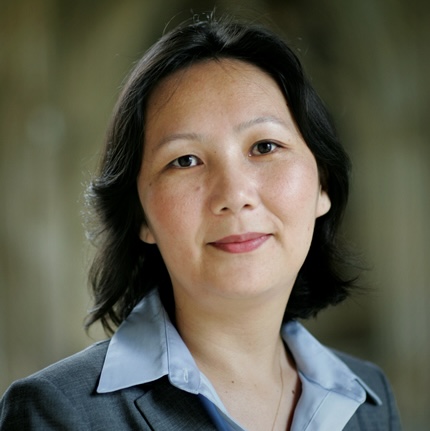 Nurgul Ukueva
Nurgul Ukueva
Nurgul Ukueva
Nurgul Ukueva is a visiting associate professor of economics at Bard College and an associate professor of economics at the American University of Central Asia (AUCA). Ukueva received her PhD in economics from Duke University with specialization in development and international economics. She served as the chair of the Economics Department and vice president for academic affairs at AUCA, and was an OSUN visiting research fellow at Bard College. Her recent research focuses on international migration and migrant remittances, gender wage differences, and determinants of female labor supply in Central Asia.
Economics Program at Bard College
PO Box 5000Annandale-on-Hudson
New York 12504











